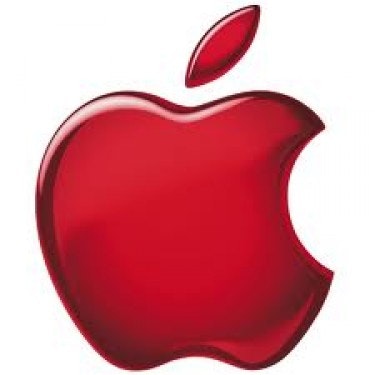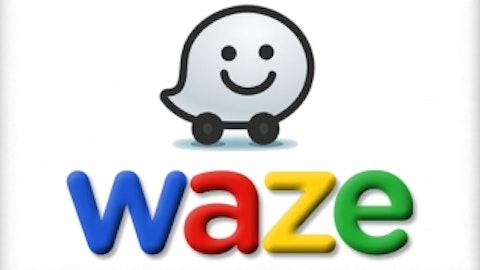Yesterday at the Worldwide Developers Conference (WWDC) 2013 keynote, Apple Inc. (NASDAQ:AAPL) CEO Tim Cook revealed one of the most significant revisions of iOS ever. The update, due to be released in the fall, includes a massive visual revamp. With Apple industrial designer Jonathan Ive in charge of the new version, iOS is cleaner, simpler, and “flatter.”
But what does the overhaul mean for Apple’s revenue? After all, WWDC is a conference for developers, not consumers. Will phone buyers care about Jony’s gorgeous new revision of iOS?
Apple Inc. (NASDAQ:AAPL) has been resting on its laurels when it comes to many of the base features of iOS. Sure, it’s created new features and software like Siri and the notorious Maps app. But the basics were the same. Apple’s attitude toward iOS mirrored their attitude toward the iPhone in general: We got it right the first time; we don’t need to make any big changes.
But the era of Tim Cook has seen the first cracks in that confidence with the introduction of the iPhone 5 and its larger screen. The 3.5 inch screen Steve Jobs had deemed perfect got stretched to 4 inches. And with the iPad Mini, Apple shrunk its hefty tablet to match competitors, again against the posthumous wishes of Jobs. The point is that Apple is looking outside of itself more than ever. The post-Jobs Apple is no longer invincible, and Cook understands that to compete with the ascendant Android, Apple needs to give a bit.
The new operating system contains a handful of major concessions. For one, Apple Inc. (NASDAQ:AAPL) has created a true quick access panel for settings where you can access the camera, flashlight, Bluetooth, WiFi, and more with one swipe. The menu that previously held five buttons now holds 16, a step backward for simplicity perhaps, but a step forward for functionality. Secondly, the lock screen and Notifications Center have been overhauled, with many new options available for both. Again, the trade-off is simplicity for functionality. Now you can deal with notifications straight from the lock screen.
The significant thing about many of these changes is that they simply mirror what is currently available for Android. Of course, they have been Apple-ified and (arguably) improved. But in some ways Apple Inc. (NASDAQ:AAPL) is playing catch-up for some of the existing Android functionality.
As I’ve written in the past, I do think that implementation of features is much more important than the features themselves. For example, I don’t think that most consumers toggle their Bluetooth or WiFi enough to care about the new Control Center. However, I think what this iOS upgrade shows us is a strategic Apple. They are going back to the drawing board to fortify their current strengths.
I think it’s a smart long-term move that may hurt them a bit in the short-term. After trading up a bit during the keynote, Apple Inc. (NASDAQ:AAPL) stock was down. Without an easy-to-digest update like a new iPhone or iPad, investors may be worried anew that Apple has lost its edge. But I think iOS shows a smarter, more realistic company that is ready to face its competitors on the new playing field.
Google and Microsoft
So what does the new iOS mean for Apple Inc. (NASDAQ:AAPL)’s two biggest competitors?
For Google Inc (NASDAQ:GOOG), it means some pats on the back. After playing catch-up for years, Android has now seen a significant number of its features borrowed by iOS. One might argue that the market is now truly competitive, with the rivalry driving both companies to innovate and improve upon one another’s innovations.
It’s an exciting time for consumers, but perhaps less so for Google. The company, which has been steadily gaining market share, may plateau soon. Google’s own I/O event in May did not include an update to Android, which many observers welcomed as a break from relentless Android fragmentation. That fragmentation reveals a major advantage Apple Inc. (NASDAQ:AAPL) has over Google: a far tighter rein over its software and hardware. That tight grip has previously led Apple to be reluctant to change, but iOS 7 is a hint that that might be changing.
There are rumors that Google Inc (NASDAQ:GOOG) might be releasing that Android update soon, and I’ll be excited to see what Google’s next set of innovations will look like. The company has also been pushing for more control of hardware, with the announcement that its Motorola Mobility subsidiary will be producing a new Moto X handset–a sign that Google is beginning to see the advantages of Apple’s stance?
I would keep an eye on Google over the next few months to see how they respond. With stocks currently trading near an all-time high, it’s not a wise time to buy Google. The company has been smart so far with its moves in the mobile market, but it’s now a critical time.
Microsoft Corporation (NASDAQ:MSFT) is also trading high, at its highest in nearly a decade. The company’s Xbox One announcement was fairly well received, although Sony’s Playstation 4 may yet outshine it. But while Microsoft has a decent handle on the gaming market, it is decidedly less confident when it comes to mobile.
When the Windows Phone debuted, it kicked off a movement toward the “flat” design that Apple Inc. (NASDAQ:AAPL) is embracing with iOS 7. Imagine that — a Microsoft design choice inspiring Apple. Indeed, the phone’s operating system is attractive and modern, and the next version looks to be innovative as well.
Windows Phones are succeeding in emerging markets, where manufacturer Nokia Corporation (ADR) (NYSE:NOK) is a prominent player. Thus, Microsoft Corporation (NASDAQ:MSFT) is in a strong short to medium-term position, as its dominance in those markets has gone as-yet unchallenged by Apple.
However, with rumors swirling of a low-cost Apple handset targeted at precisely these regions, and iOS 7 indicating that Apple is now willing to make such an iconoclastic (Jobs-o-clastic?) move, Microsoft’s long-term prospects in the mobile market are less certain.
Steven Yenzer owns shares of Apple. The Motley Fool recommends Apple and Google. The Motley Fool owns shares of Apple, Google, and Microsoft. Steven is a member of The Motley Fool Blog Network — entries represent the personal opinion of the blogger and are not formally edited.
The article What Does iOS 7 Mean for Apple? originally appeared on Fool.com and is written by Steven Yenzer.
Copyright © 1995 – 2013 The Motley Fool, LLC. All rights reserved. The Motley Fool has a disclosure policy.






